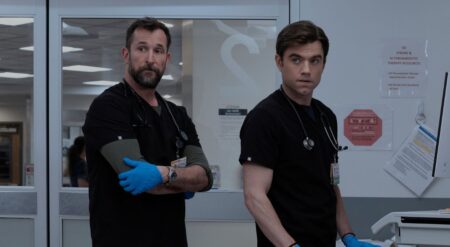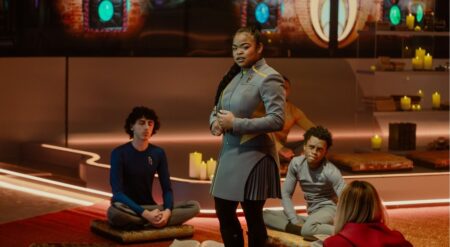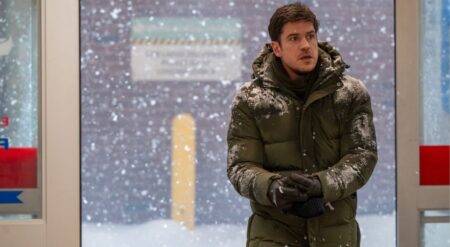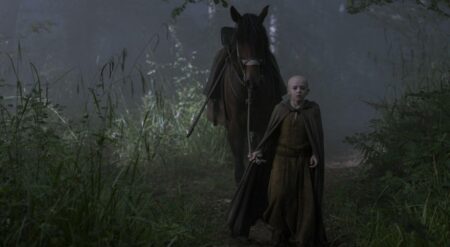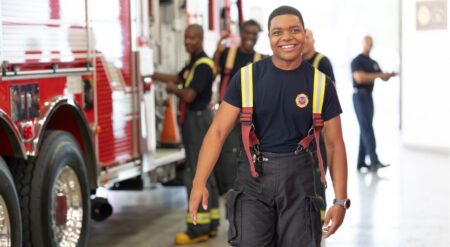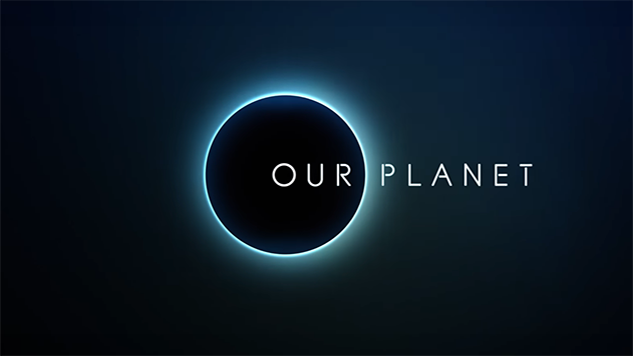
Narrated by the legendary Sir David Attenborough, Our Planet may seem like your run-of-the-mill BBC nature documentary, in the vein of Planet Earth or Blue Planet. But, it isn’t. This documentary series is much more of a personal project for Attenborough, the legendary naturalist. It’s almost as if he’s realized that simply showing the majesties of the natural world through his various other documentaries hasn’t been enough to convince regular citizens to take action against man-made climate change. With Our Planet, Attenborough makes a direct plea to the viewers to actively work to reverse the damage humanity has caused.
In most nature documentaries, the animals’ homes are presented as pristine and untouched by humanity. Our Planet consistently frames its subjects’ stories in the context of how they’ve been affected by human activities. Whether it’s arctic wildlife suffering from the collapse of the ice caps, coral reefs dying from temperature increase, or the degradation of natural fisheries, this series pulls no punches when presenting the dire state of its subject matter. The degradation of nature and the effects of climate change are real and happening now.
Somehow, more than most nature documentaries, Our Planet has a special intimate emphasis on its many subjects. It focuses more on the daily lives of the various animals it presents and acutely details the human-made perils that these animals face. While the scenes are mostly beautiful and majestic, some of them are far less sublime.
Our Planet features gut-wrenching scenes of wildlife enduring hardship. One scene in particular with a huddle of displaced walruses is particularly striking. That being said, it is only presenting what is real. Our Planet is not an escapist fantasy. The point of this series is to show you what is happening to the natural world and give advice on how to stop it.
The educational element of this series is strong. In showing the audience the degradation of nature, Attenborough educates them about the fundamental importance of producer species (i.e. plants) and apex predators like wolves. Each episode constructs its narrative as an educational story, articulating the role that plant and coral species, for example, have to play in supporting the populations of animals we love to admire.
Each episode educates and shows you the importance and wonder of these various species, but will often end with telling you what we humans have been doing to deplete them. But it’s not all dire. The filmmakers and Attenborough also included stories of hope and nature’s resilience against human-made degradation. But of course, it’s still up to us to reverse the damage we’ve caused.

In addition to the educational enrichment, the series’ cinematography is top-notch. The sweeping shots of the landscapes and pods, herds, and flocks of animals are stunning. There are even beautiful close-ups of phytoplankton and aerial shots of the ocean turning green from their blooming. To top it all off, The sound design is incredible. The sounds of the sea, sky, forests, and other natural spaces and their inhabitants are crystal clear, letting you feel like you’re in the habitat with them. You don’t just get a stunning visual experience but an immersive sound experience as well.
Overall, Our Planet is a visually spectacular and emotive delight of a nature series. It’s unique among your typical wildlife documentaries in that it tells you, the viewer, directly what your species is doing to degrade these natural spaces, and implores you and your species to find active ways to stop it.
I applaud Sir Attenborough and the Our Planet team for making this direct message and appeal. As they mention on every episode of this wonderful series, visit ourplanet.com to see what you can do to help save our planet
You can watch Our Planet streaming exclusively on Netflix.
Our Planet
-
Rating - 10/1010/10
TL;DR
Overall, Our Planet is a visually spectacular and emotive delight of a nature series. It’s unique among your typical wildlife documentaries in that it tells you, the viewer, directly what your species is doing to degrade these natural spaces, and implores you and your species to find active ways to stop it.

